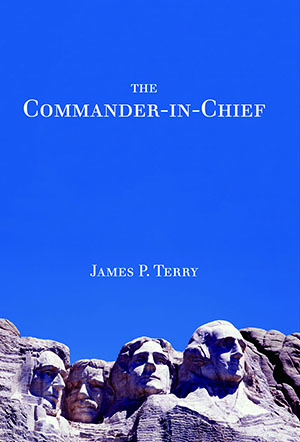Журнальный клуб Интелрос » Joint Force Quarterly » №79, 2015

James P. Terry long wore the mantle of being one of the most prolific writers in the areas of security and international law. In 2013 and 2014, his books The War on Terror and Russia and the Relationship Between Law and Power were recognized as providing articulate, extraordinary analyses of both subjects. The Commander-in-Chief is certainly equal to these two works and, in some ways, is better than both. Terry’s lifelong body of work was a product reflective of extraordinary academic credentials, hands-on service in the Marine Corps, both on the ground and as Legal Counsel to the Chairman of the Joint Chiefs of Staff, and senior leadership roles at the Departments of State and Veterans Affairs. At the time of his death on December 12, 2014, Terry, a Senior Fellow in the Center for National Security Law at the University of Virginia, had signed off on this book, which was published posthumously.
The Commander-in-Chief is a honed, expanded version of Terry’s article “The President as Commander in Chief,” which was published in the Ave Maria Law Review (2009). There is generous citing of independent collateral sources as well as of Terry’s 30 years of earlier scholarly works, making broadened references easily accessible. The index and particularly the extensive bibliography and sources sections are immensely productive.
Terry’s fundamental initial focus is the constitutional source of Presidential authority found in Article II with incremental expansion and limitations thereof guided by the Presidents themselves and the specific exigencies in which they discovered themselves, within and sometimes without the added dictates and directives of Congress and the courts. With text addressing both authority and execution, the fully comprehensive yet concise discussion of the warfighting Presidents in the aggregate is contained in the first five chapters, followed by foci on Presidential powers used in response to terrorism, humanitarian crises, United Nations peacekeeping, and in defense of U.S. nationals abroad in chapters 6 through 9.
Terry next gives consideration to Presidential powers in “protecting critical infrastructure” in circumstances such as electrical blackouts, protection of water supply, and actions post-9/11, post–Hurricane Katrina, and so forth, including establishment of the Department of Homeland Security and the strengthened review on cyber security. A final discussion relates to arms control. Each President and impacting elements and actions are addressed with remarkable objectivity in a context virtually absent any political “spin” other than learned analyses.
A eulogy written by national security expert Professor Robert Turner noted that James Terry “improved the lives of those around him through his willingness to share his knowledge and his genuine compassion for everyone.” That assessment would appear to be fulfilled in this worthwhile and final volume, which, as Turner states, is “to be read by students, policymakers and interested members of the public for generations to come.” Historians, scholars, and other readers can only hope for someone as astute and scholarly to carry on that legacy. JFQ